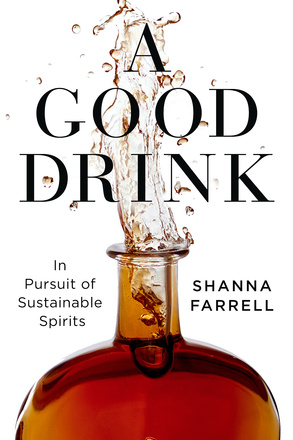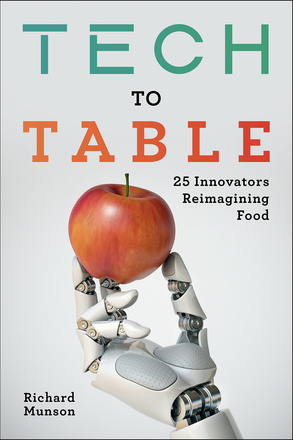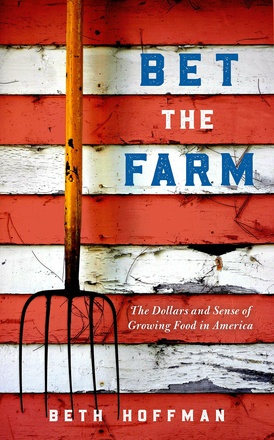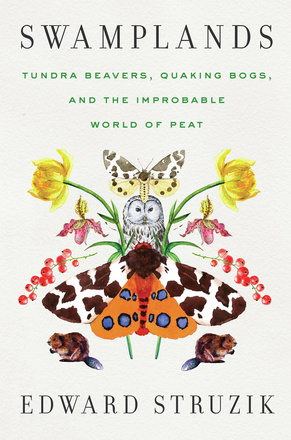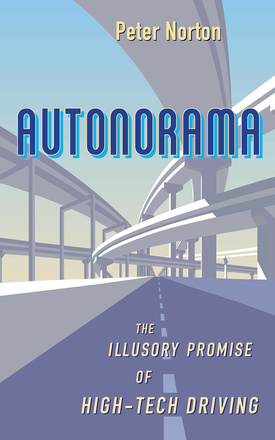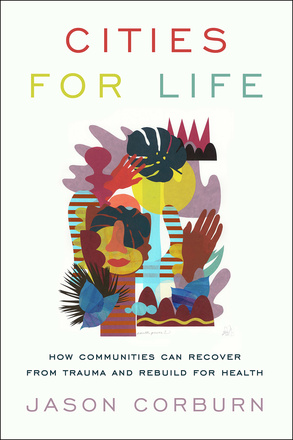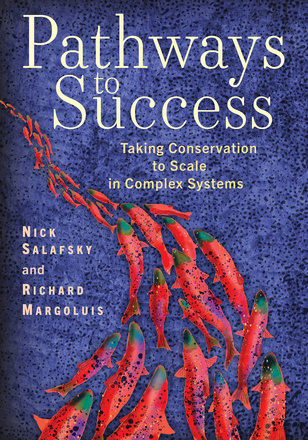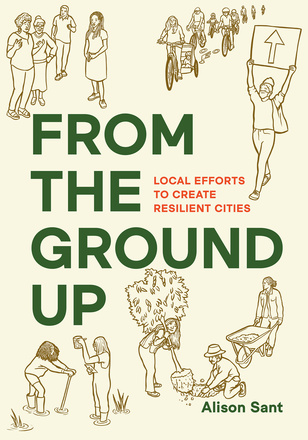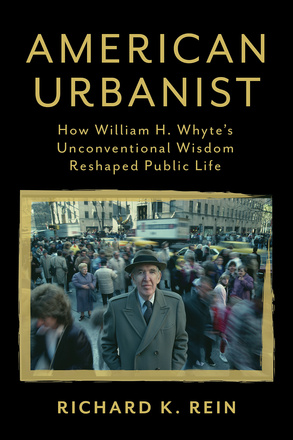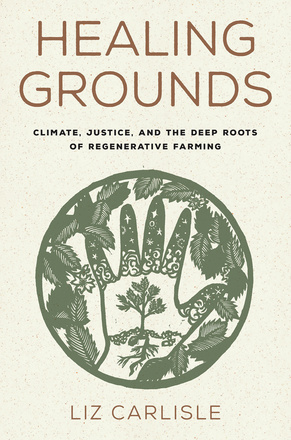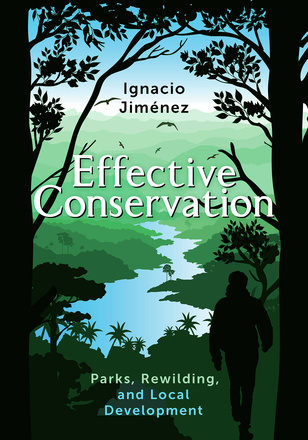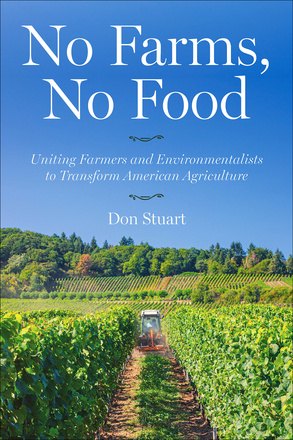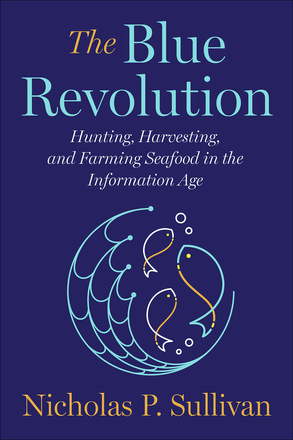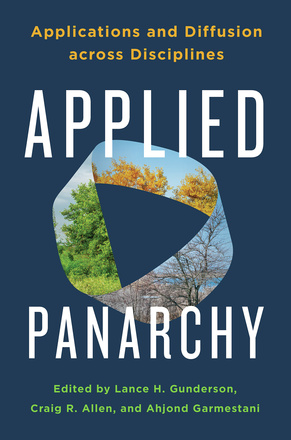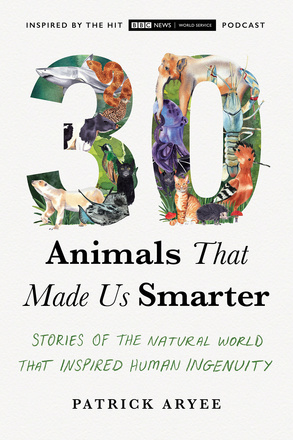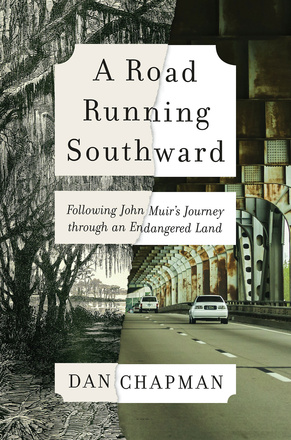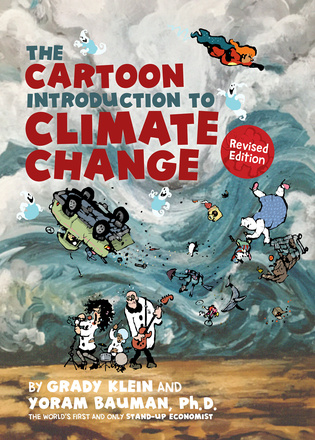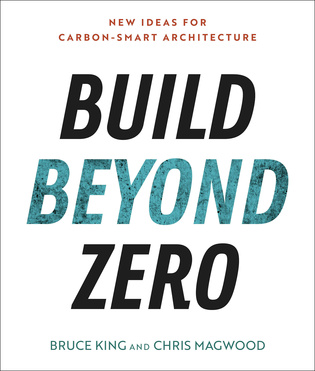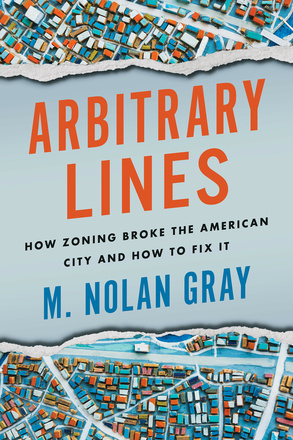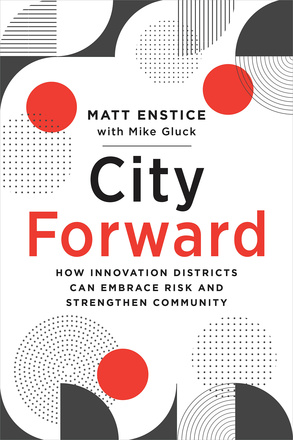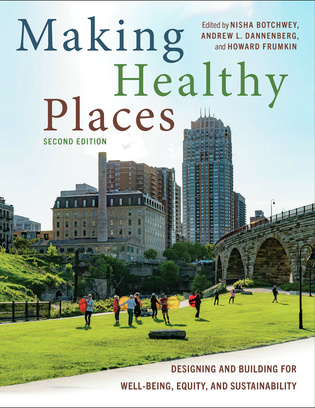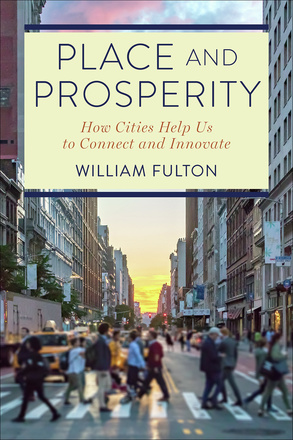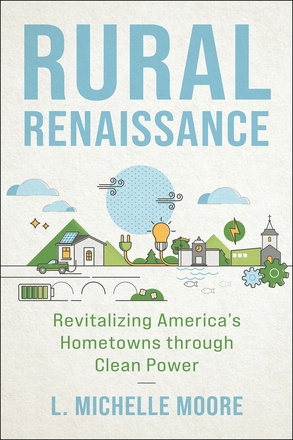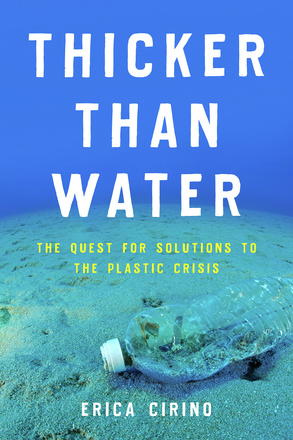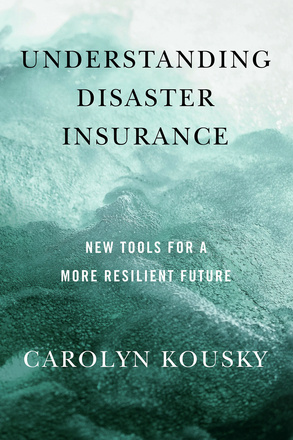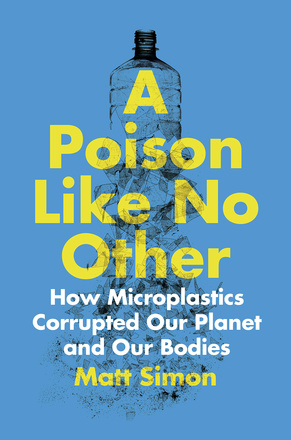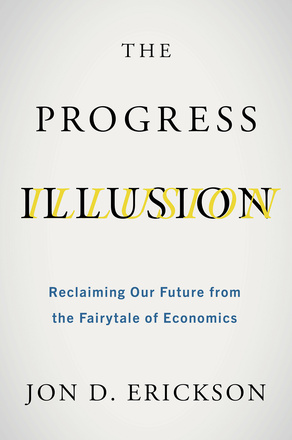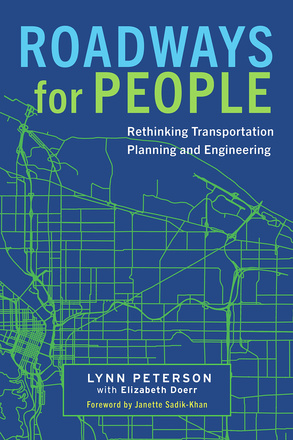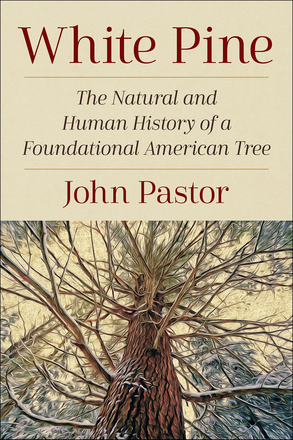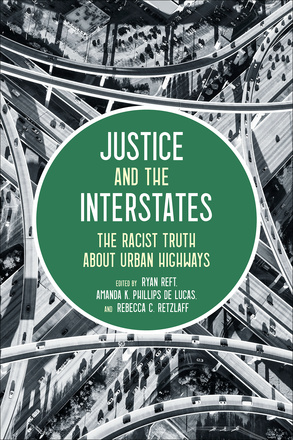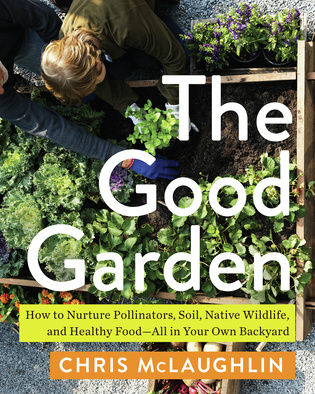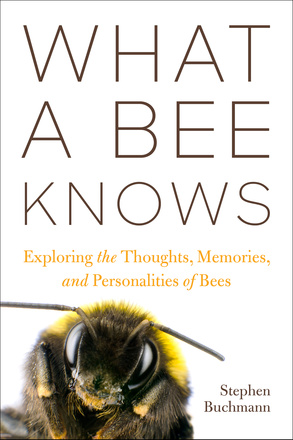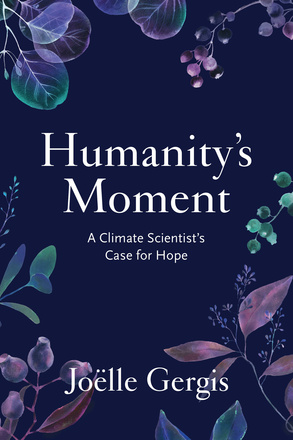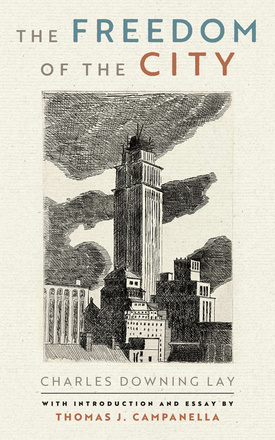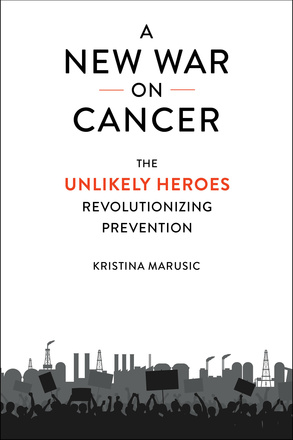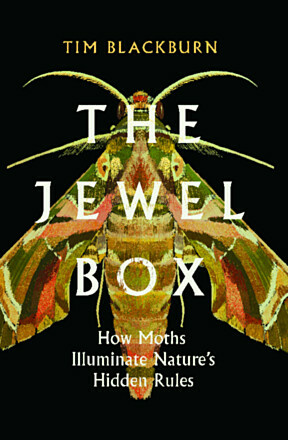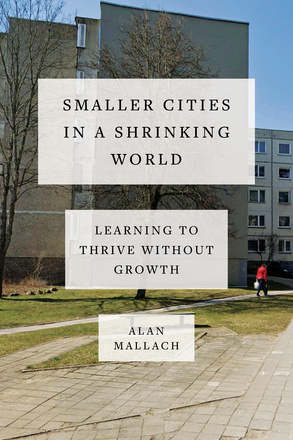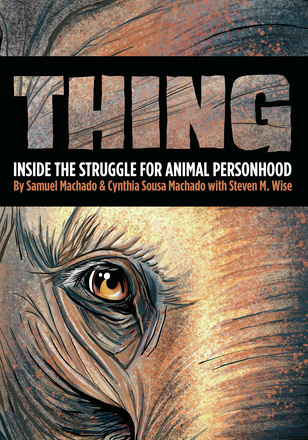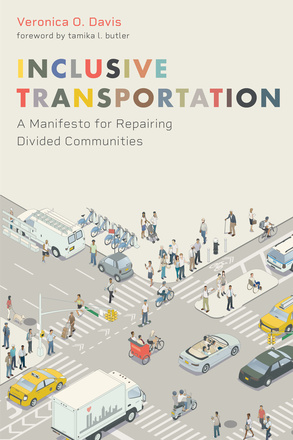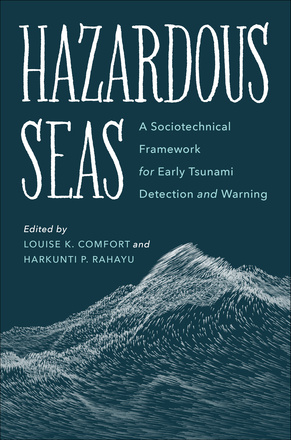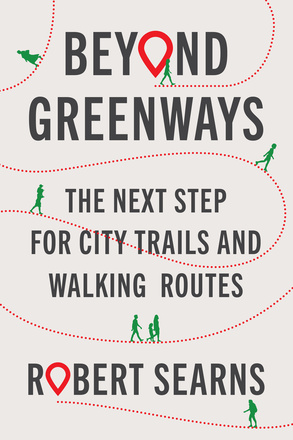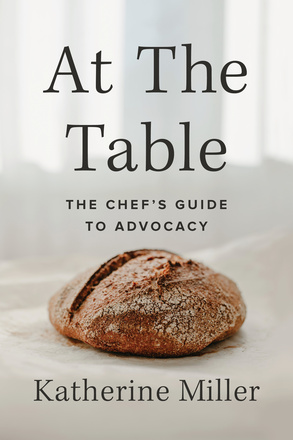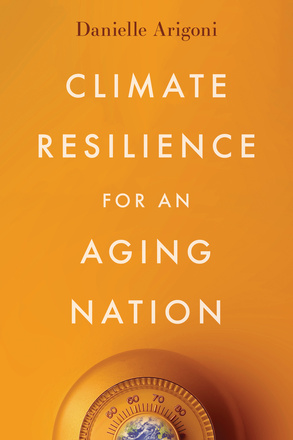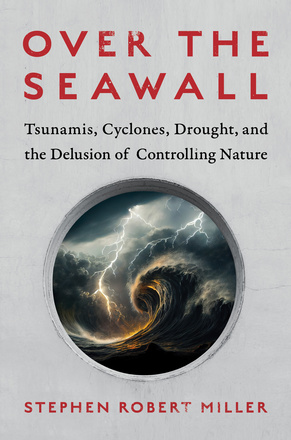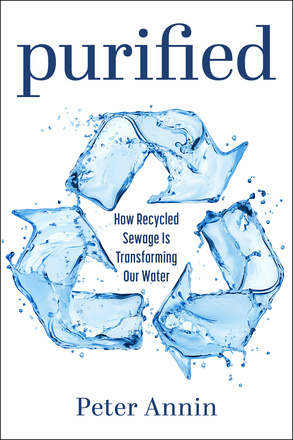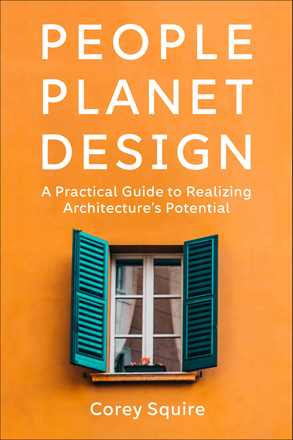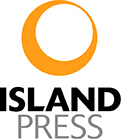
Island Press began with a simple idea: knowledge is power—the power to imagine a better future and find ways for getting us there. Founded in 1984, Island Press’ mission is to provide the best ideas and information to those seeking to understand and protect the environment and create solutions to its complex problems.
A Good Drink
In Pursuit of Sustainable Spirits
“Insightful tour de force… Farrell’s writing is as informative as it is intoxicating” -- Publishers Weekly
As a bartender, Shanna Farrell not only poured spirits, but learned their stories—who made them and how. In A Good Drink, Farrell goes in search of the bars, distillers, and farmers who are driving a transformation to sustainable spirits. She meets mezcaleros in Guadalajara who are working to preserve traditional ways of producing mezcal; a London bar owner who has eliminated individual bottles and ice; and distillers in South Carolina who are bringing a rare variety of corn back from near extinction, among many others.
For readers who have ever wondered who grew the pears that went into their brandy or why their cocktail is an unnatural shade of red, A Good Drink will be an eye-opening tour of the spirits industry. For anyone who cares about the future of the planet, it offers a hopeful vision of change, one pour at a time.
Tech to Table
25 Innovators Reimagining Food
Tech to Table introduces readers to twenty-five of the most creative entrepreneurs innovating these solutions. They come from various places and professions, identities and backgrounds. But they share an outsider’s perspective and an idealistic, often disruptive, ambition to reinvent the food system.
The pace and breadth of change is astonishing, as investors pump billions of dollars into ag-tech. Not every innovator will prosper long-term, but each marks a fundamental change in our approach to feeding a growing population—sustainably.
Bet the Farm
The Dollars and Sense of Growing Food in America
In her late 40s, Beth Hoffman decided to upend her comfortable life as a professor and journalist to move to her husband’s family ranch in Iowa—all for the dream of becoming a farmer. There was just one problem: money. Half of America's two million farms made less than $300 in 2019, and many struggle just to stay afloat.
Bet the Farm chronicles this struggle through Beth’s eyes. She must contend with her father-in-law, who is reluctant to hand over control of the land. Growing oats is good for the environment but ends up being very bad for the wallet. And finding somewhere, in the midst of COVID-19, to slaughter grass finished beef is a nightmare.
If Beth can’t make it, how can farmers who confront racism, lack access to land, or don’t have other jobs to fall back on hack it? Bet the Farm is a first-hand account of the perils of farming today and a personal exploration of more just and sustainable ways of producing food.
Swamplands
Tundra Beavers, Quaking Bogs, and the Improbable World of Peat
Swamplands celebrates these wild places, as journalist Edward Struzik highlights the unappreciated struggle to save peatlands by scientists, conservationists, and landowners around the world. An ode to peaty landscapes in all their offbeat glory, the book is also a demand for awareness of the myriad threats they face. It inspires us to see the beauty and importance in these least likely of places. Our planet’s survival might depend on it.
Autonorama
The Illusory Promise of High-Tech Driving
Norton takes the reader on an engaging ride—from the GM Futurama exhibit to “smart” highways and vehicles—to show how we are once again being sold car dependency in the guise of mobility.
Autonorama is hopeful, advocating for wise, proven, humane mobility that we can invest in now, without waiting for technology that is forever just out of reach.
Cities for Life
How Communities Can Recover from Trauma and Rebuild for Health
In Cities for Life, public health expert Jason Corburn shares lessons from three of these cities: Richmond, California; Medellín, Colombia; and Nairobi, Kenya. Corburn draws from his work with citizens, activists, and decision-makers in these cities over a ten-year period, as individuals and communities worked to heal from trauma—including from gun violence, housing and food insecurity, poverty, and other harms. Cities for Life is about a new way forward with urban communities that rebuilds our social institutions, practices, and policies to be more focused on healing and health.
Pathways to Success
Taking Conservation to Scale in Complex Systems
In this strikingly illustrated volume, coauthors Nick Salafsky and Richard Margoluis walk readers through fundamental concepts of effective program-level design, helping them to think strategically about project coordination, funding, and stakeholder input. Pathways to Success is the definitive guide for conservation program managers and funders who want to increase the effectiveness of their work combating climate change, species extinctions, and the many challenges we face to keep our planet livable.
From the Ground Up
Local Efforts to Create Resilient Cities
Sant presents 12 case studies, drawn from research and over 90 interviews with people who are working in these communities to make a difference. These efforts show how US cities are reclaiming their streets from cars, restoring watersheds, growing forests, and adapting shorelines to improve people’s lives while addressing our changing climate.
From the Ground Up is a call to action. When we make the places we live more climate resilient, we need to acknowledge and address the history of social and racial injustice. Advocates, non-profit organizations, community-based groups, and government officials will find examples of how to build alliances to support and embolden this vision together.
American Urbanist
How William H. Whyte's Unconventional Wisdom Reshaped Public Life
Dream Play Build
Hands-On Community Engagement for Enduring Spaces and Places
For twenty years, James Rojas and John Kamp have been using art, creative expression, and storytelling to shake up the classic community meeting. In Dream Play Build, they share their insights into building common ground and inviting active participation among diverse groups. Their approach, “Place It!,” draws on three methods: the interactive model-building workshop, the pop-up, and site exploration using our senses. Inspirational and fun, this book celebrates the value of engaging with the dreams we have for our communities.
Bird Brother
A Falconer's Journey and the Healing Power of Wildlife
Healing Grounds
Climate, Justice, and the Deep Roots of Regenerative Farming
This, Carlisle shows, is the true regenerative agriculture: a holistic approach that values diversity in both plants and people. It has the power to combat climate change, but only if we reckon with agriculture’s history of oppression. Through rich storytelling, Carlisle lays bare that painful history, while lifting up the voices of farmers who are working to restore our soil, our climate, and our humanity.
Effective Conservation
Parks, Rewilding, and Local Development
Effective Conservation is based on Jiménez’s experience managing conservation projects on three continents over thirty years. It guides readers through the practical considerations of designing, analyzing, and managing effective conservation programs. This highly readable manual, newly translated into English after successful Spanish and Portuguese editions, provides a practical, time-proven formula for successful conservation.
No Farms, No Food
Uniting Farmers and Environmentalists to Transform American Agriculture
With leadership from AFT, that constituency drove through Congress the first “Conservation Title” in the history of the U.S. Farm Bill; oversaw the development of agriculture conservation easement programs throughout the country; and continues to develop innovative approaches to sustainable agriculture.
No Farms, No Food is both an inspiring history of agricultural conservation and a practical guide to creating an effective advocacy organization. This is an essential read for everyone who cares about the future of our food, farms, and environment.
The Blue Revolution
Hunting, Harvesting, and Farming Seafood in the Information Age
Nicholas P. Sullivan presents this new way of thinking by profiling the people and policies transforming an aging industry into one fueled by “sea-foodies” and locavores interested in sustainable, traceable, quality seafood. The Blue Revolution brings encouraging news for conservationists and seafood lovers about the transformation of an industry historically averse to change, and it presents fresh inspiration for entrepreneurs and investors eager for new opportunities in a blue-green economy.
Applied Panarchy
Applications and Diffusion across Disciplines
Intended as a text for graduate courses in environmental sciences and related fields, Applied Panarchy picks up where Panarchy left off, inspiring new generations of scholars, researchers, and professionals to put its ideas to work in practical ways.
30 Animals That Made Us Smarter
Stories of the Natural World That Inspired Human Ingenuity
A Road Running Southward
Following John Muir's Journey through an Endangered Land
"Engaging hybrid - part lyrical travelogue, part investigative journalism and part jeremiad, all shot through with droll humor." --The Atlanta Journal Constitution
In 1867, John Muir set out on foot to explore the botanical wonders of the South, from Kentucky to Florida. One hundred and fifty years later, veteran Atlanta reporter Dan Chapman recreated Muir’s journey to see for himself how nature has fared since Muir’s time. He uses humor, keen observation, and a deep love of place to celebrate the South’s natural riches. But he laments the long-simmering struggles over misused resources and seeks to discover how Southerners might balance surging population growth with protecting the natural beauty Muir found so special.
A Road Running Southward is part travelogue, part environmental cri de coeur—a passionate appeal to save one of the loveliest and most biodiverse regions of the world by understanding what we have to lose if we do nothing.
The Cartoon Introduction to Climate Change, Revised Edition
That creativity comes from the minds of Yoram Bauman, the world’s first and only “stand-up economist,” and award-winning illustrator Grady Klein. After seeing their book used in classrooms and the halls of Congress alike, the pair has teamed up again to fully update the guide with the latest scientific data.
Sociologists have argued that we don’t address climate change because it’s too big and frightening to get our heads around. The Cartoon Introduction to Climate Change takes the intimidation and gloom out of one of the most important challenges of our time.
Build Beyond Zero
New Ideas for Carbon-Smart Architecture
Build Beyond Zero offers an exciting vision of climate-friendly architecture, along with practical advice for professionals working to address the carbon footprint of our built environment.
Arbitrary Lines
How Zoning Broke the American City and How to Fix It
Gray lays the groundwork for this ambitious cause by clearing up common misconceptions about how American cities regulate growth and examining four contemporary critiques of zoning (its role in increasing housing costs, restricting growth in our most productive cities, institutionalizing racial and economic segregation, and mandating sprawl). He sets out some of the efforts currently underway to reform zoning and charts how land-use regulation might work in the post-zoning American city.
Arbitrary Lines is an invitation to rethink the rules that will continue to shape American life—where we may live or work, who we may encounter, how we may travel. If the task seems daunting, the good news is that we have nowhere to go but up.
City Forward
How Innovation Districts Can Embrace Risk and Strengthen Community
Institutional leadership, business owners, and professionals will find experienced direction here. City Forward is a refreshing look at the brighter futures that we can create through thoughtful collaboration—moving forward, together.
Making Healthy Places, Second Edition
Designing and Building for Well-Being, Equity, and Sustainability
Making Healthy Places is a must-read for students, academics, and professionals in health, architecture, urban planning, civil engineering, parks and recreation, and related fields.
Managing the Climate Crisis
Designing and Building for Floods, Heat, Drought, and Wildfire
Managing the Climate Crisis: Designing and Building for Floods, Heat, Drought and Wildfire by design and planning experts Jonathan Barnett and Matthijs Bouw is a practical guide to addressing this urgent national security problem. Barnett and Bouw draw from the latest scientific findings and include many recent, real-world examples to illustrate how to manage seven climate-related threats: flooding along coastlines, river flooding, flash floods from extreme rain events, drought, wildfire, long periods of high heat, and food shortages.
Place and Prosperity
How Cities Help Us to Connect and Innovate
Fulton has been writing about cities over his forty-year career as a journalist, professor, mayor, planning director, and the director of an urban think tank in one of America’s great cities. Place and Prosperity is a curated collection of his writings with new and updated selections and framing material.
Fulton shows that at their best, cities not only inspire and uplift us, but they make our daily life more convenient, more fulfilling, and more prosperous.
Rural Renaissance
Revitalizing America’s Hometowns through Clean Power
Thicker Than Water
The Quest for Solutions to the Plastic Crisis
Understanding Disaster Insurance
New Tools for a More Resilient Future
Understanding Disaster Insurance is a useful guidebook for policymakers, innovators, students, and other decision makers working to secure a resilient future—and anyone affected by wind, fire, rain, or flood.
A Poison Like No Other
How Microplastics Corrupted Our Planet and Our Bodies
It’s falling from the sky and is in the air we breathe. It’s in our food, our clothes, and our homes. It’s microplastic and it’s everywhere—including our own bodies. Scientists are just beginning to discover how these tiny particles threaten health, but the studies are alarming.
A Poison Like No Other is the first book to fully explore this new dimension of the plastic crisis. Matt Simon follows the intrepid scientists who travel to the ends of the earth and the bottom of the ocean to understand the consequences of our dependence on plastic. Unlike other pollutants that are single elements or simple chemical compounds, microplastics represent a cocktail of toxicity linked to diseases ranging from diabetes to cancer.
There is no easy fix, Simon warns. But we will never curb our plastic addiction until we begin to recognize the invisible particles all around us.
The Progress Illusion
Reclaiming Our Future from the Fairytale of Economics
In The Progress Illusion, Jon Erickson charts the rise of the economic worldview and its infiltration into our daily lives as a theory of everything. Drawing on his experience as a young economist inoculated in the go-go 1980’s era of "greed is good," Erickson shows how flawed economic thinking shaped our politics and determined the course of American public policy.
While the history of economics is dismal indeed, Erickson is part of a vigorous reform effort grounded in the realities of life on a finite planet. Crafting a new economic story, he shows, is the first step toward turning away from endless growth and towards enduring prosperity.
Roadways for People
Rethinking Transportation Planning and Engineering
Roadways for People is written to empower professionals and policymakers to create transportation solutions that serve people rather than cars.
White Pine
The Natural and Human History of a Foundational American Tree
Sundressed
Natural Fabrics and the Future of Clothing
Sustainable fashion journalist Lucianne Tonti answers with a resounding yes. Beautiful clothes made from natural fabrics including cotton, wool, flax, and cashmere can support rural communities and regenerate landscapes. They can also reduce waste—but only if we invest in garments that stand the test of time rather than chasing fast fashion trends.
Sundressed is an exploration of a revolution taking place in fashion. And it is a love letter to clothing that embodies beauty and value, from farm to closet.
Justice and the Interstates
The Racist Truth about Urban Highways
Justice and the Interstates provides community advocates, transportation planners, engineers, historians, and policymakers with a concise but in-depth examination of the damages wrought by highway construction on the nation’s communities of color—from West Baltimore to Birmingham to the San Gabriel Valley. The authors provide a way forward to both address this history and reconcile it with current practices.
The Good Garden
How to Nurture Pollinators, Soil, Native Wildlife, and Healthy Food—All in Your Own Backyard
In this joyful guide, McLaughlin gives you all the tricks and tips you need to grow the sustainable garden of your dreams. Gardeners will learn the fundamentals, including how to choose the right plant varieties for their microclimate, and proven methods to fight pests without chemicals. You’ll also discover the nuances of developing a green thumb, from picking species to attract specific types of pollinators to composting techniques based on time available. A good garden offers endless possibilities and The Good Garden offers a wealth of knowledge and inspiration.
What a Bee Knows
Exploring the Thoughts, Memories, and Personalities of Bees
Although their brains are incredibly small—just one million neurons compared to humans’ 100 billion—bees have remarkable abilities to navigate, learn, communicate, and remember. In What a Bee Knows, entomologist Stephen Buchmann explores a bee’s way of seeing the world and introduces the scientists who make the journey possible. What a Bee Knows will challenge your idea of a bee’s place in the world—and perhaps our own.
Humanity's Moment
A Climate Scientist's Case for Hope
In Humanity’s Moment, Joëlle takes us through the science in the IPCC report with unflinching honesty, explaining what it means for our future, while sharing her personal reflections on bearing witness to the climate emergency unfolding in real time. But this is not a lament for a lost world. It is an inspiring reminder that human history is an endless tug-of-war for social justice in which each of us play a part. Humanity’s Moment is a climate scientist’s guide to rekindling hope, and a call to action to restore our relationship with ourselves, each other, and our planet.
The Freedom of the City
Campanella writes “The Freedom of the City was prescient in 1926 and timely now. Certainly, the essentials of good urbanism extolled in the book—human scale, diversity, walkability, the serendipities of the street; above all, density—are articles of faith among architects and urbanists today.”
Lay’s words are relevant today as density and congestion are once again under siege, especially in our most productive and thriving cities.
A New War on Cancer
The Unlikely Heroes Revolutionizing Prevention
In searching for answers, Kristina Marusic met remarkable doctors, scientists, and advocates who are upending our understanding of cancer and how to fight it. They recognize that we will never reduce cancer rates without ridding our lives of the chemicals that increasingly trigger this deadly disease. For Berry, a young woman whose battle with breast cancer is woven throughout these pages, the fight has become personal.
Marusic shows that, collectively, we have the power to prevent many cases like Berry’s. The war on cancer is winnable—if we revolutionize the way we fight.
The Jewel Box
How Moths Illuminate Nature’s Hidden Rules
Smaller Cities in a Shrinking World
Learning to Thrive Without Growth
In Smaller Cities in a Shrinking World, urban policy expert Alan Mallach seeks to understand how declining population and economic growth, coupled with the other forces that will influence their fates, particularly climate change, will affect the world’s cities over the coming decades.
Mallach has woven together his vast experience, research, and analysis in this fascinating, realistic-yet-hopeful look at how smaller, shrinking cities can thrive, despite the daunting challenges they face.
Inclusive Transportation
A Manifesto for Repairing Divided Communities
Davis aims to disrupt the status quo of the transportation industry. She urges transportation professionals to reflect on past injustices and elevate current practice to do the hard work that results in more than an idea and a catchphrase.
Inclusive Transportation is a call to action and a practical approach to shaping communities based on principles of justice and equity.
Hazardous Seas
A Sociotechnical Framework for Early Tsunami Detection and Warning
Hazardous Seas, edited by disaster preparedness experts Louise K. Comfort and Harkunti P. Rahayu, is an invaluable guide for policy makers and international NGOs looking to save lives from tsunamis and mitigate crippling damage to communities. It also provides a comprehensive overview of tsunami detection and warning for students of engineering, computer science, planning, policy, and economic and environmental analysis.
Beyond Greenways
The Next Step for City Trails and Walking Routes
Searns introduces two models—grand loop trails and town walks. Grand loop trails are 20 to 350-mile systems that encircle metro areas. Town walks are shorter—2 to 6-mile routes in cities. He then lays out how to plan, design, and build support for them, drawing inspiration from trails in the US and abroad.
Planners, trail advocates, and community leaders will find the tools here to develop successful and affordable trails. Now is the time to pursue accessible pedestrian routes for this, and future, generations.
At the Table
The Chef's Guide to Advocacy
In At the Table, Miller presents the essential techniques she developed for the James Beard Foundation’s Chefs Boot Camp for Policy and Change. Readers will learn how to focus their philanthropic efforts; pinpoint their audience and develop their argument; recruit allies and support action; and maybe most importantly, grab people’s attention in a crowded media landscape. You don’t have to be a celebrity chef to change the food system; you just need the will and the tools in this unique guide.
Climate Resilience for an Aging Nation
Arigoni explores how to integrate age-friendly resilience into community planning and disaster preparedness efforts through new planning approaches. These include an age-friendly process, and a planning framework dedicated to inclusive disaster recovery.
Climate Resilience for an Aging Nation will help professionals and concerned citizens understand how to best plan for both the aging of our population and the climate changes underway to create communities that serve the needs of older adults better, not only during disasters but for all the days in between.
Over the Seawall
Tsunamis, Cyclones, Drought, and the Delusion of Controlling Nature
Academics call it maladaptation; in simple terms, it’s about solutions that backfire. Over the Seawall tells the stories behind these unintended consequences and the fixes that do more harm than good. From seawalls in coastal Japan, to reengineered waters in the Ganges River Delta, to the ribbon of water supporting both farms and cities in parched Arizona, we visit engineering marvels once deemed too smart and too big to fail. After each we better understand how complicated, grandiose schemes fail. Ultimately, we learn that if we are to adapt successfully to climate change, we must recognize that working with nature is not surrender but the only way to assure a secure future.
Purified
How Recycled Sewage Is Transforming Our Water
Purified’s fast-paced narrative cuts through the fearmongering and misinformation to make the case that recycled water is direly needed in the climate-change era. Water cannot be taken for granted anymore—and that includes sewage.
People, Planet, Design
A Practical Guide to Realizing Architecture’s Potential
In People, Planet, Design, architect Corey Squire builds the case, provides the data, and lays out the practical tools for human-centered architecture. This approach integrates beauty and delight with an awareness of every design choice’s impact. Outcome-focused with a deep dive into practical strategies, the book showcases ten building systems that embody design excellence.
Essential reading for architects who want to transform what the profession means, People, Planet, Design pioneers a new vision and sets readers up with clear guidance for implementation.

